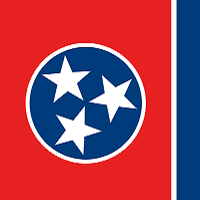The Netherlands will proceed with its plans to restrict gambling advertising. The harsh measure was announced by Frank Weerwind last summer, with the minister planning to ban the first set of ads on January 1, 2023. However, the ban was eventually delayed because of public consultations regarding the law.
Now, Weerwind has announced that the ban on untargeted gambling ads should happen by July 1. As a result, the other planned bans will also be delayed. Thus, TV program sponsorships should be banned from July 1, 2024, with sports sponsorships to follow on July 1, 2025.
Weerwind added that if the ban on untargeted ads is further delayed, the other two bans will also be postponed accordingly. This will provide operators, TV companies and sports teams with enough time to prepare.
Weerwind made his statement as a response to questions from other parliamentary members. However, the minister added that he is against the idea of suspending an operator’s license after two violations have been identified.
Weerwind Opposes the Two-Strikes-You’re-Out Model
The Netherlands, known for its strict gambling regulations, is bullish on protecting the youth from being bombarded with gambling content. A survey from a year ago proved that young adults are exposed to tons of ads, while minors still encounter promotions on TV and radio.
In the wake of such concerns, Dutch lawmakers proposed restricting gambling ads and temporarily suspending the license of big-time offenders. Under the proposed two-strikes-you’re-out model, the Netherlands will be able to temporarily suspend operators if they commit two or more offenses and promote to young people.
However, Weerwind said that the rules should be enforced proportionally. In addition, the minister noted that the local regulator should be able to correct its licensees’ mistakes once they have been identified.
Weerwind noted that conversation often leads to compliance. He said that the regulator is also able to impose periodic penalty payments when necessary and, if a violator still fails to comply, further fines can be imposed.
Weerwind added that the Kansspelautoriteit can also prevent payment providers from accepting payments from incompliant companies – a measure that he believes is much better than a two-strikes-you’re-out model.
Overregulation Allegedly Does More Harm than Good
While the Netherlands continues to be keen on regulating the online gaming market, some have suggested that overregulation might have adverse effects.
In a recent letter to the Dutch House of Representatives, affiliate companies claimed that certain bans encourage customers to play with illegal operators. Since offshore companies rarely offer the same safeguards that their licensed counterparts do, channeling players toward the black market can be very dangerous, the letter said.
The affiliates asked the government to rethink its stance on certain sports betting markets that are currently prohibited in the country.
